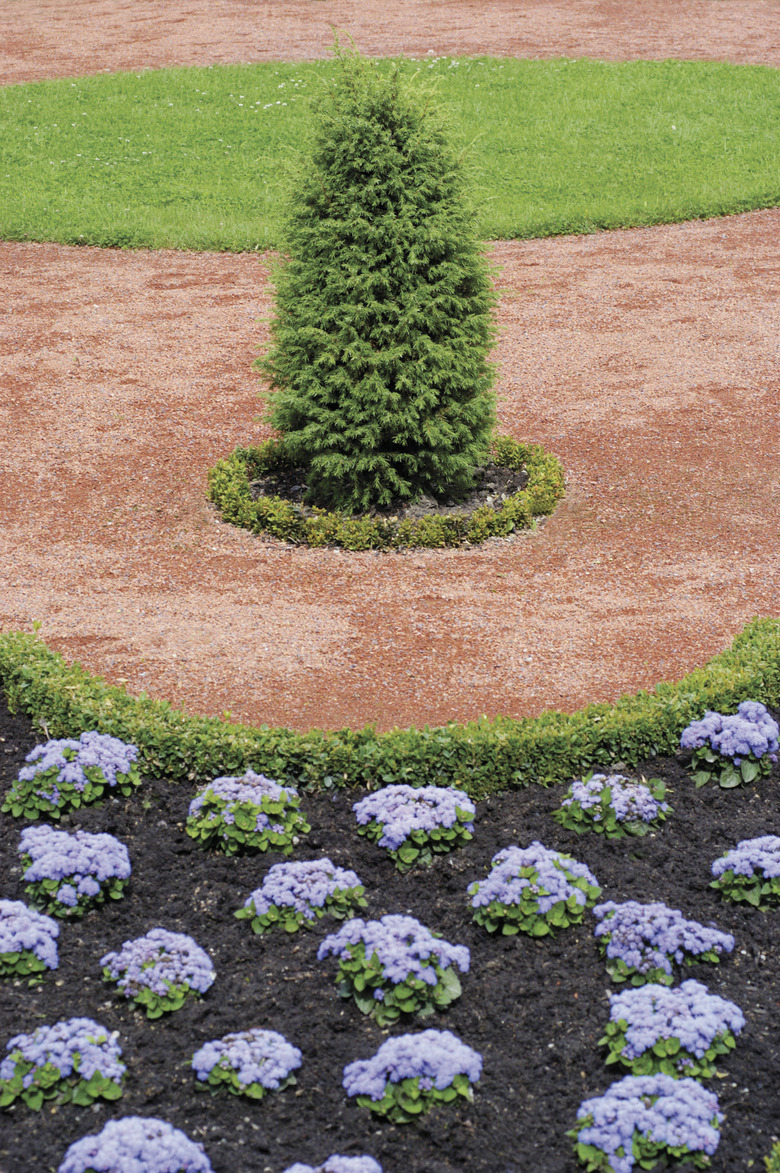Does Roundup Contaminate Soil For Gardening?
Roundup herbicide takes much of the toil out of weeding a garden, eliminating the need for hoeing or hand pulling. Because the active ingredient, glyphosate, kills plants by interrupting the growth process, there is no soil contamination to affect on seeds or plants introduced to the garden after spraying the herbicide. Plant leaves and stems absorb this broad-spectrum herbicide.
Glyphosate
Step 1
Glyphosate, a non-selective, broad-spectrum herbicide kills both broadleaf plants and grasses when applied during the active growth phase. The faster a plant is growing when glyphosate is applied, the more quickly it dies. Because Roundup is a post-emergence herbicide, rhizomes, tubers and bulbs not attached to emerged plants and unemerged seeds are not affected by glyphosate in the soil.
Uses
Step 1
Roundup provides weed and grass control in home gardens and landscapes, as well as on farms and in industrial applications. In the landscape, spraying with Roundup keeps paths plant free when reapplied as new plants emerge. Roundup can be used on the edges of flower beds and gardens to prevent invasion of creeping grasses. Plant eradication with Roundup facilitates establishment of new gardens. Because Roundup acts only on actively growing plants, new plants and seeds are not affected by the use of Roundup prior to planting a new bed.
- Roundup herbicide takes much of the toil out of weeding a garden, eliminating the need for hoeing or hand pulling.
- Because the active ingredient, glyphosate, kills plants by interrupting the growth process, there is no soil contamination to affect on seeds or plants introduced to the garden after spraying the herbicide.
Environment
Step 1
Glyphosate can stay in soil for up to six months, according to the National Pesticide Information Center. Besides the active ingredient glyphosate, the Roundup formula also contains a surfactant to increase Roundup's spreading and sticking qualities. Both glyphosate and the surfactant used in Roundup adsorb, or hold tightly, to soil particles, slowing or preventing their movement through soil and into waterways. Roundup is not likely to get into waterways when application precautions are observed. According to the United States Forest Service, glyphosate does not have herbicidal properties once it makes contact with soil and it is not absorbed from the soil by plant roots.
Considerations
Step 1
Although Roundup is considered safe for home and garden use, wearing protective clothing and goggles is recommended to prevent skin and eye irritation. Avoid inhalation as well. Do not spray on windy days, as drift can damage nearby plants. Do not apply Roundup when rainfall is expected on the same day, as the chemical can wash off of leaves before it is absorbed and be rendered ineffective. Do not store or use glyphosate-containing products in galvanized steel or unlined steel containers because chemical interaction can produce highly combustible hydrogen gas. Flush all parts of your sprayer with water after use to prevent accidental Roundup application the next time you use your sprayer with a different product. Better yet, dedicate a particular sprayer to Roundup use only. Always follow label directions for application rates and safety precautions.
- Glyphosate can stay in soil for up to six months, according to the National Pesticide Information Center.
- Do not apply Roundup when rainfall is expected on the same day, as the chemical can wash off of leaves before it is absorbed and be rendered ineffective.
